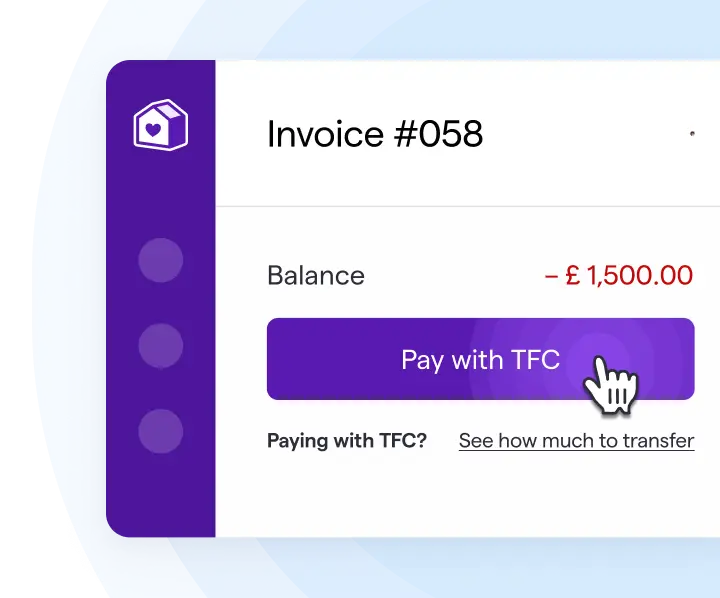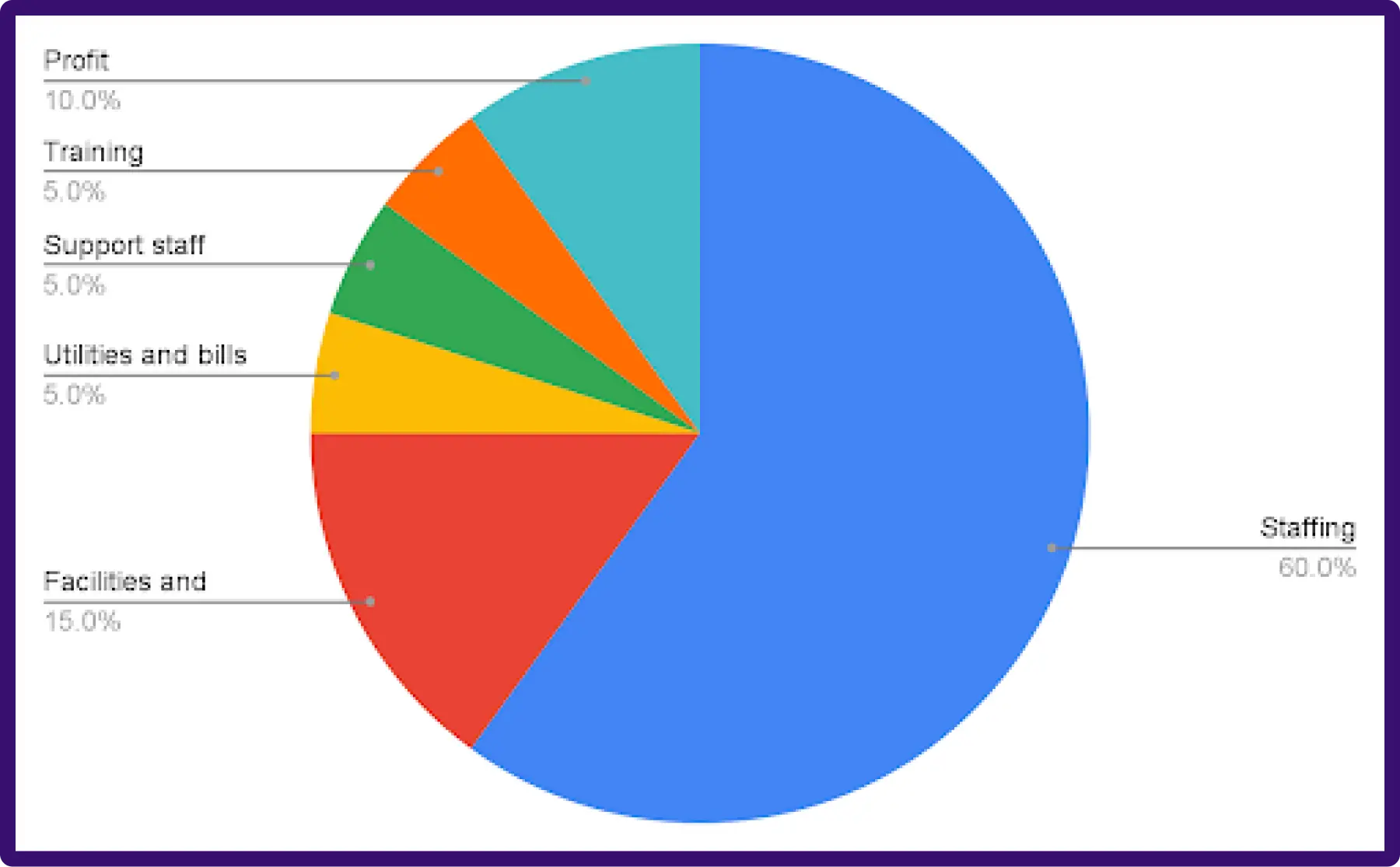settings
children
With Famly since
The big ideas
- Noone likes to have to tell parents that they have to pay more for something they need, but in the current economic crisis, with your setting’s costs rising, you might have to do just that.
- Being as transparent as possible with your bill-payers about the reason you’re putting fees up can help them understand why paying more is necessary, even if they’re not completely happy about it.
- Once you’ve given parents and carers the news, make sure you’re available to chat and answer any questions. Just knowing you’re there to hear them out about any concerns can really help.
When you realise that you have to raise your setting’s fees, one of the first thoughts in any leader’s head is, “What on earth am I going to say to the parents?”
So, before Little Beehive in Scotland raised their fees, Business Development Manager Matt Martin decided he wanted to make the news as positive and palatable as possible. While Matt knew that none of the parents were going to thank him for increasing their bill, it would certainly help if they could at least understand why it needed to happen.
So Matt made a plan: be as transparent as possible. He created a short document for parents and carers, breaking down how, when and why Little Beehive had to increase their fees.
Let’s take a look at how he did it, with a free template at the bottom of this article, so you can do it too.
How to give your bill-payers some warning
Once you’ve made the decision to raise your fees, consider how much notice you should give parents and carers. It might feel that the more notice you can give, the better, but this should still be within reason.
If you tell parents you’re raising fees in a year’s time, it can feel too far off for them to want to think about right now. And, if you wait too long between explaining the fees will increase and bills actually going up, your parents might simply forget. That means you’ll end up with a lot of confused bill-payers on the phone the day the new prices kick in.
That being said, parents and carers certainly shouldn’t feel blind-sided either. About 3 months is a fairly good balance as it gives parents time to ask questions and prepare.
“We usually give a minimum of 3 months notice for our yearly fee increase – but for larger scale ones we normally prewarn parents with 6 months,” says Matt, “For example, when we announced to parents that we would be charging for our in-service days, we gave them 6 months notice. Generally, we try tell parents as soon as we know all the details.”
Explain why you need to raise fees
Little Beehive were looking to raise fees to pay their staff members the real living wage, so that’s just what they told parents. If you want to pay for more staff training and development, or if your utilities and business rates have gone up, simply say so. It’s always best to be honest.
“I think if I were to do it again now, we would probably include a portion about the significant pressure of inflation,” says Matt, “Our energy costs have increase by 150% in 12 months, our food costs are up 20%, and our general expense has increased by about 11% for everything.”
Use this explanation as a way to inform parents and carers about all the careful thought and calculations that have gone into your decision, but avoid presenting the change extremely negatively or apologising too much. Acknowledge how it may affect some parents, and offer support, but your explanation of why you need to put fees up should read as just that, not an excuse.
“We told parents via the leaflet that our fees would be increasing by about 4%, on top of whatever inflation was, for the next three years,” says Matt, “So if inflation was 3%, we would be increasing our fees to parent by 7%, aiming to catch up with the real living wage. However, I did make it super clear that this was my best outcome prediction and if we need to increase fees again for another year or two, we would.”
Here’s how Little Beehive explained it to their parents and carers:
Aims: The living wage
What does this mean for the team? Three years of pay increases to the sustainable living wage, as per the recommendation of the Living Wage Foundation. From August 2017 to August 2019, pay increases for qualified staff will go up by approximately 25%. The average salary for a Scottish nursery practitioner in 2017 is £13,814 and our goal is to be paying £18,761 at entry level, for all ages, by 2019.

Raise your fees as slowly as you can
To reach Matt’s goal of all the Little Beehive staff earning the real living wage, fees would of course have to be raised, but not overnight. To soften the blow of one big fee hike, Matt showed parents and carers the increases that would be needed over the next three years, to catch the Little Beehive team up to the living wage.
Small, annual fee increases can go a long way to preventing you from having to impose a large, one-off increase. If you go long periods without raising fees, or you wait until you’re really struggling, you might have to raise fees by a greater amount to make up for an ongoing loss.
The less you can raise fees, even if you do it more times over a longer period, can make each increase alone feel more palatable to bill-payers. And, if the fees go up too much in one go, you risk losing parents to other settings, right when you need the revenue the most.
Here’s how Little Beehive broke it down for their parents and carers:
How will we get there?
For the next three years, our salary pay increase will be above inflation, to allow us to catch up with the real living wage. The increases below show what we anticipate the hourly rate for an entry-level EYP to be, per year, for the next three years.
- 2017: a 9.53% increase to £7.89.
- 2018: a 7% increase to £8.44.
- 2019: a 7% increase to £9.03.
Clearly show parents where their money will go
As part of Matt’s explainer to the Little Beehive parents, he included a pie chart to illustrate a breakdown of where their money was going. A simple chart can be made in Google Sheets or Excel and is a clear way of showing your bill-payers that every penny coming into the setting counts.
Consider how you categorise your expenses into areas like:
- Staff Salaries
- Facilities Maintenance / Improvement
- Resources
- Training
- Utilities and other bills
- Administration and support
- Business rates
- Other operational expenses
- Profit & Development
Here’s an example of how that might look:

It may feel intensely vulnerable to lay your finances out to parents and carers, but don’t forget, they entrust their child to you every day - you can trust them too.
Here’s how Little Beehive explained their fee breakdown in the pie-chart:
- Staffing
Staffing is our biggest cost and our most important resource. For every pound you spend in Little Beehive Nursery, over half goes to the staff. This not only includes their salaries but also training and other costs. In comparison, retail stores have staffing costs of around 17.8%.
- Facilities
Facilities are our second biggest expenditure. This includes not only resources for the children but also rent, loans, repairs, and renewals. Keeping the nurseries in tip-top condition is a high priority and in the past few years, we have redeveloped several rooms across the nurseries, to keep them up-to-date. We will continue to do this in the coming years.
- Support Staff
Nursery support staff, such as administrators, HR advisors, credit controllers, and curriculum support, are a very vital part of the team, although you might not see them on the floor. The support staff are working in the back to make the whole operation run as smoothly as possible.
- Profits
Profits don’t just go to shareholders, they are also used for expansion and development over the past 20 years, allowing Little Beehive to become the group it is today.
Be available to answer any questions
This can feel like the most challenging aspect of raising fees, especially when you know parents are feeling the pinch too. That being said, if you’ve followed all the steps above, you should actually have fewer questions to answer.
Often, parents and carers will just want to be heard, so having a manager, senior leader, or administrator to talk things through with can go a long way to restoring their confidence.
Top tips from Alphabet House
Get top tips from a setting just like yours. Hear from Alphabet House on why and how they use Famly - and why they’ve never looked back.
Read their story




-min.png)





